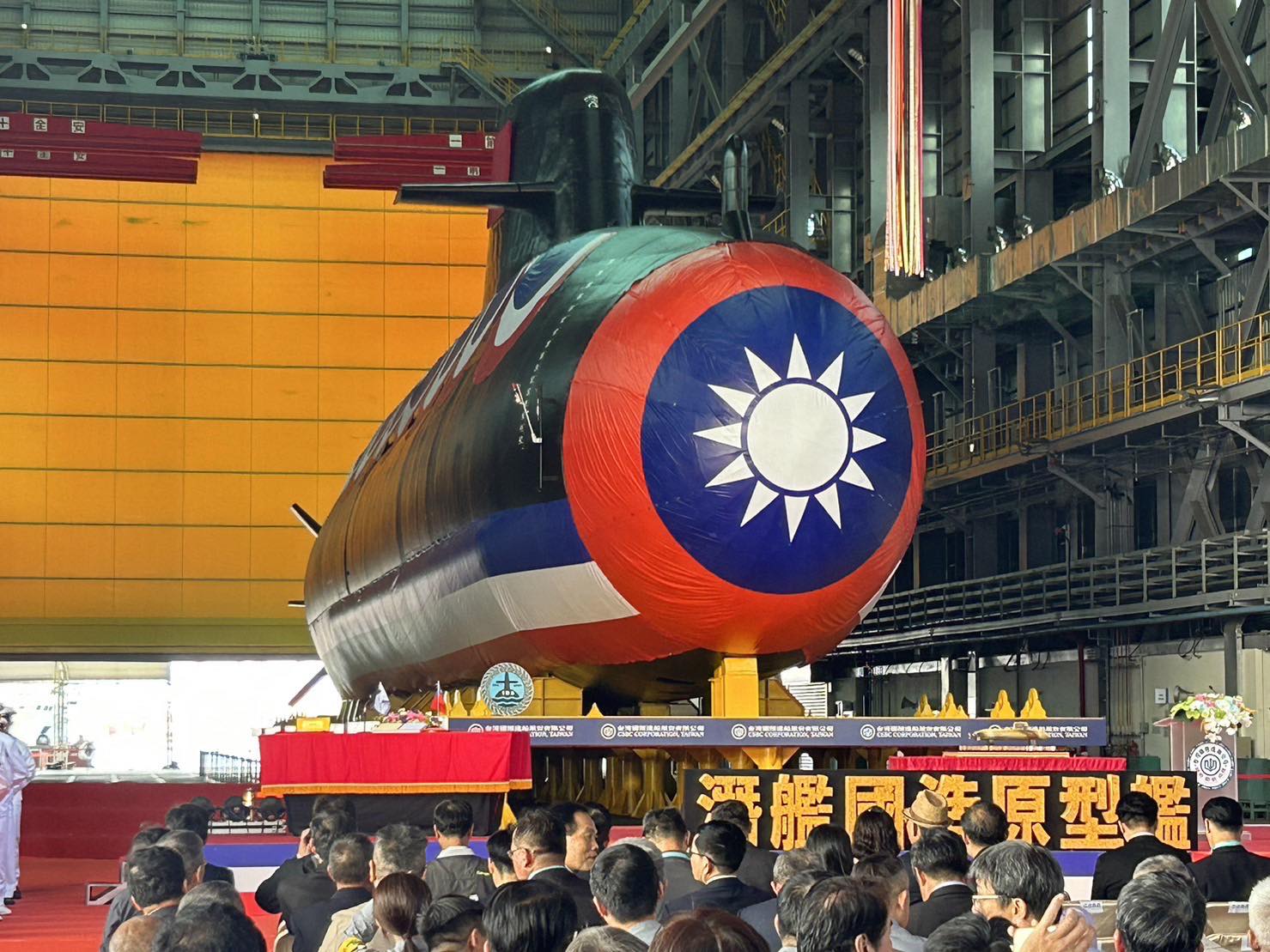Days after Taiwan unveiled its first indigenously developed submarine called the ‘Hai Kun,’ reports indicate that the South Korean government targeted a company involved in the submarine program due to fears of economic retaliation by China.
A police document seen by Reuters and two people familiar with the situation had revealed that when South Korean authorities accused marine technology company SI Innotec of violating trade laws for its work on Taiwan’s new military submarine program in 2022, they cited the possibility of Chinese economic retaliation.
SI Innotec is a South Korean marine engineering firm and one of the foreign contractors involved in the ambitious Taiwanese submarine project. In an affidavit dated February 17, 2022, submitted to the court, the South Korean police sought the arrest of SI Innotec executive director Park Mal-sik for trade discrepancies.
However, the affidavit reveals that the contractor and its chief were targeted due to fears of another round of sweeping sanctions that an angry Chinese establishment could impose if a South Korean firm were involved in developing a Taiwanese submarine. These concerns were informed by a similar action taken by Beijing in 2016 when Seoul deployed a US THAAD missile defense system.
The affidavit allegedly noted that the agreement between SI Innotec and Taiwan over the supply of equipment for making submarines “directly impacts the overall security of South Korea,” and police, who had consulted with the nation’s arms sales regulator, were “concerned about a crisis similar to a second THAAD deployment, such as economic retaliation.”
The Defense Acquisition Program Administration (DAPA) regulator of South Korea had allegedly informed an unnamed subcontractor that the government had “export concerns” regarding Taiwan and “takes a very cautious stance” on such licenses.
Police referenced China’s irate response to reports in 2021 about defense contractors and experts from South Korea and six other countries working on Taiwan’s submarine program in the sealed affidavit.

According to a person familiar with the matter, the judge ordered Park’s detention on February 28 because he posed a flight risk and would tamper with evidence. Park, who received a suspended prison sentence, and SI Innotec, who was penalized, both maintain their innocence and have filed appeals against the punishment awarded to them.
Beijing has for many years warned other nations against participating in Taiwanese naval upgrades, which the self-ruled Taiwan considers a significant part of its military modernization in the face of Chinese threat. While unveiling the submarine, Taiwanese President Tsai said, “The submarine is an important realization of our concrete commitment to defending our country..”
According to court documents, two more South Korean companies that were purportedly suppliers to Taiwan were also charged in November with violating trade regulations, and one of their senior executives was accused of industrial espionage.
The Reuters report further noted that interviews with seven individuals with connections to the military, shipbuilding, and judicial systems and the SI Innotec affidavit demonstrate how political concerns about a trade war with China, Seoul’s biggest trading partner, have affected South Korea’s investigations into the three businesses.
According to the affidavit, several companies with submarine knowledge shied away from assisting Taiwan because they did not anticipate official permission given the possibility of “bigger damage to (the) economy than benefits,” including a potential Chinese export embargo to South Korea.
Notably, their concerns may not be misplaced because the 2016 sanctions imposed by China on South Korea rattled the country and its economy to an extent, with consequences that were felt for years to come.
A Crisis Started With A THAAD Battery
Terminal High Altitude Area Defense (THAAD) system, a US-made anti-ballistic missile defense system, has remained a contentious diplomatic issue between South Korea and China. It was in July 2016 that South Korea decided to deploy THAAD in response to North Korea’s escalating threats.
The THAAD system is designed to intercept ballistic missiles; it does not carry warheads but destroys attack missiles on impact. Despite sanctions and warnings, it was considered a significant defense against an aggressive Pyongyang developing and testing ballistic missiles.
However, it triggered a fierce response from China, which claimed that the United States may use the system’s radar to spy on China. While it asked Seoul not to proceed with the deployment, the unwavering resolve expressed by the latter came with a considerable cost.
The decision taken by South Korea paved the way for over 16 months of discord, recrimination, and unofficial trade sanctions that left Seoul’s economy gasping for air and its businesses starved.
China felt so threatened by any such deployment that it restricted travel, limited distribution of South Korean films, restricted tourism, and supported domestic boycotts of South Korean items. Some South Korean products were also banned. South Korean manufacturers incurred US$7.5 billion in economic losses, and the South Korean tourism industry was said to have suffered US$15 billion in losses.
The conflict and a long period of economic coercion ended with former South Korean President Moon Jae-in’s trip to Beijing in December 2017, and the two parties signed a “Three nos” agreement.
The “three nos” entailed that South Korea wouldn’t get any more anti-ballistic missile systems, South Korea wouldn’t join a US missile defense system that covers the entire region, and South Korea, the US, and Japan would not form a military alliance. However, the election of a new government has starkly changed these stated policies and commitments.
Despite that, however, there are overwhelming fears of another round of economic warfare that China could wage. The alleged targeting of companies and individuals involved in Taiwan’s submarine program may have been yet another step to prevent a 2016-like situation.
- Contact the author at sakshi.tiwari9555 (at) gmail.com
- Follow EurAsian Times on Google News